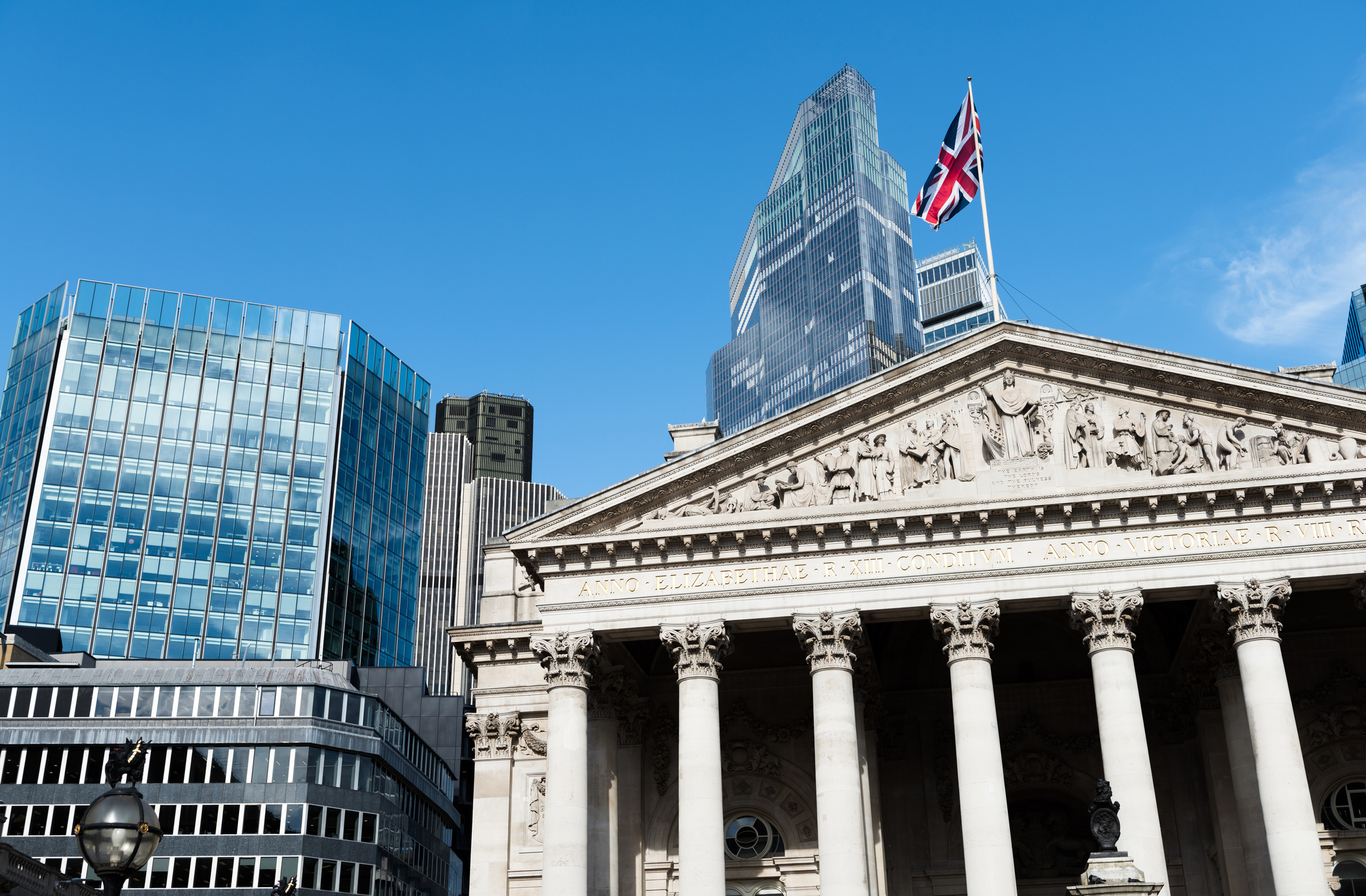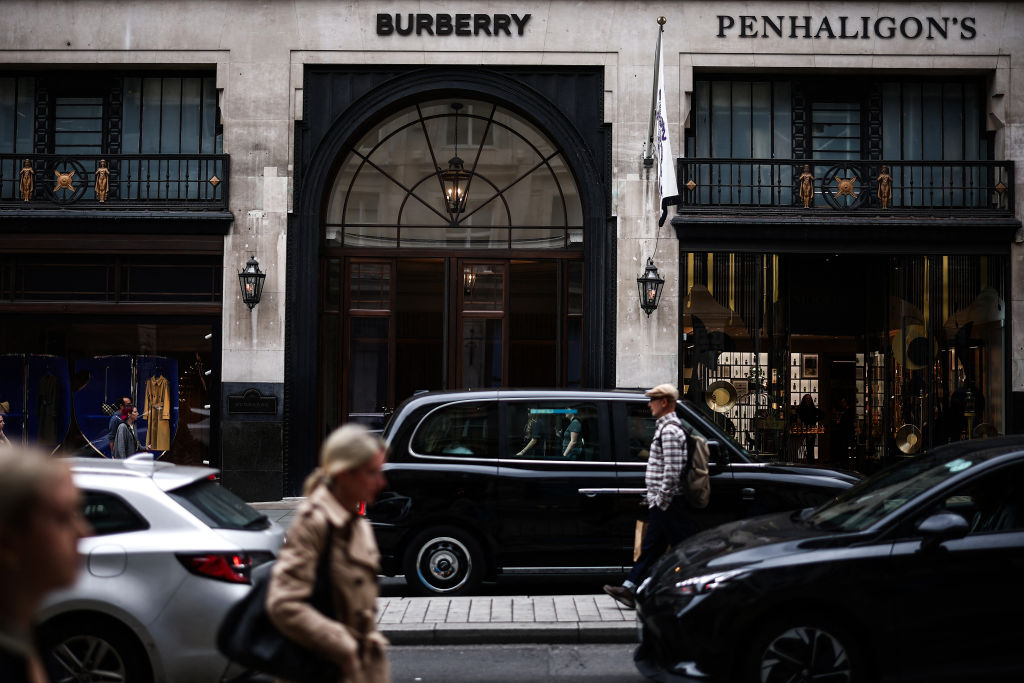The top stocks in the FTSE 100
The FTSE 100 celebrated its best year since the global financial crisis in 2025 and has hit new highs early this year. Which are the top stocks that drove last year's gains?


Get the latest financial news, insights and expert analysis from our award-winning MoneyWeek team, to help you understand what really matters when it comes to your finances.
You are now subscribed
Your newsletter sign-up was successful
Want to add more newsletters?
The FTSE 100, the UK’s flagship stock market index, has hit new highs during the opening days of 2026, continuing its momentum from a strong year in 2025.
The index’s constituents feature consistently among the top stocks for retail investors, with household names like Diageo (LON:DGE) and BP (LON:BP.) topping the list of stocks bought by investment platform Interactive Investor’s customers during December.
This has driven the FTSE 100 to all-time highs, breaking the 10,000 barrier for the first time on 2 January and pushing on to over 10,200 on 15 January.
Try 6 free issues of MoneyWeek today
Get unparalleled financial insight, analysis and expert opinion you can profit from.

Sign up to Money Morning
Don't miss the latest investment and personal finances news, market analysis, plus money-saving tips with our free twice-daily newsletter
Don't miss the latest investment and personal finances news, market analysis, plus money-saving tips with our free twice-daily newsletter
FTSE 100 stocks are typically large, multinational companies. Its revenue is derived mostly from overseas, and as such its performance isn’t necessarily correlated with that of the UK economy.
The FTSE 250, which consists of the next 250 largest UK-listed companies, is typically viewed as a closer barometer for the health of the UK economy specifically, as its mid-cap stocks have a more domestic focus.
Despite that, the FTSE 100 tends to receive a boost whenever the UK does well. A surprise 0.3% growth figure in UK GDP for November saw the index open 0.2% higher on 15 January.
“With November’s snapshot of economic health more robust than expected, it’s put more spring in the step of listed companies linked to the domestic outlook,” said Susannah Streeter, chief markets strategist at Wealth Club. “With the economy wriggling firmly out of recession territory there’s also some expectation it’ll help boost consumer confidence.”
So what are the top stocks in the FTSE 100, and should you consider investing?
The top-performing FTSE 100 stocks of 2025
2025 was the FTSE 100’s best year for price returns since the global financial crisis. But which were the top stocks that drove gains of over 21%?
Here are the top-performing FTSE 100 stocks of 2025:
Company | Price gains during 2025 |
|---|---|
Fresnillo | 453% |
Airtel Africa | 213% |
Endeavour Mining | 172% |
Babcock International | 148% |
Antofagasta | 106% |
Rolls-Royce | 102% |
Standard Chartered | 84% |
Prudential | 80% |
Lloyds Banking Group | 79% |
Barclays | 77% |
Source: LSEG
Fresnillo (LON:FRES), the world’s largest silver miner, led the FTSE 100 as its share price increased more than fivefold during the year, benefitting from a 147% increase in the price of silver. Endeavour Mining (LON:EDV) and Antofagasta (LON:ANTO) also cashed in on an excellent year for precious metals.
Defence stocks like Rolls-Royce (LON:RR.) and Babcock International (LON:BAB) also made the top ten list, alongside resurgent financial stocks like Standard Chartered (LON:STAN), Prudential (LON:PRU) and Lloyds (LON:LLOY).
The top FTSE 100 stocks by market cap
In terms of market capitalisation (market cap), these are the biggest stocks in the FTSE 100 as of 15 January:
Company | Market cap (£ billion) |
|---|---|
Astrazeneca | 222.5 |
HSBC | 208.3 |
Shell | 156.2 |
Rolls-Royce | 107.1 |
Unilever | 105.4 |
British American Tobacco | 92.4 |
Rio Tinto | 79.7 |
GSK | 76.6 |
BP | 69.9 |
Barclays | 66.4 |
Source: London Stock Exchange
Pharmaceuticals giant Astrazeneca holds the top spot in the FTSE 100’s list of largest companies at present.
Should you invest in the FTSE 100?
While UK share price gains don’t always match the explosive rates of their American counterparts, FTSE 100 shares can be a good source of dividends and close the gap in terms of total returns.
“Fundamentally, the FTSE 100 can help provide ballast to an ISA or pension portfolio, particularly as the index has a rich source of dividends and a good mix of cyclical and defensive companies,” says Dan Coatsworth, investment analyst at AJ Bell.
“Holding UK equities alongside the US, emerging markets, Europe and others may be the best way to capture emerging winners, reduce your investment risk, and benefit from global megatrends,” says James McManus, chief investment officer at JP Morgan-owned digital wealth manager Nutmeg.
One easy way to invest in the FTSE 100 is buying a tracker fund such as the Vanguard FTSE 100 UCITS ETF (LON:VUKE).
Get the latest financial news, insights and expert analysis from our award-winning MoneyWeek team, to help you understand what really matters when it comes to your finances.

Dan is a financial journalist who, prior to joining MoneyWeek, spent five years writing for OPTO, an investment magazine focused on growth and technology stocks, ETFs and thematic investing.
Before becoming a writer, Dan spent six years working in talent acquisition in the tech sector, including for credit scoring start-up ClearScore where he first developed an interest in personal finance.
Dan studied Social Anthropology and Management at Sidney Sussex College and the Judge Business School, Cambridge University. Outside finance, he also enjoys travel writing, and has edited two published travel books.
-
 Early signs of the AI apocalypse?
Early signs of the AI apocalypse?Uncertainty is rife as investors question what the impact of AI will be.
-
 Fund inflows hit a six-month high in November – where are investors putting their money?
Fund inflows hit a six-month high in November – where are investors putting their money?Investors returned to the financial markets amid the Autumn Budget in November 2025 but caution remains.
-
 The top stocks of 2025 - did you pick a winner?
The top stocks of 2025 - did you pick a winner?Last year was a chaotic one for the stock market, but which stocks did investors buy the most of?
-
 FTSE 100 dividend forecast slips – should you buy UK equities?
FTSE 100 dividend forecast slips – should you buy UK equities?Analysts have dialled back their FTSE 100 dividend forecasts, but UK equities could still offer an attractive yield overall
-
 FTSE 100 dividends: where to find the best yields for UK equities
FTSE 100 dividends: where to find the best yields for UK equitiesFTSE 100 dividend forecasts have sagged but investors can still find good yields in UK equities with payments expected to reach more than £80 billion in 2025
-
 Burberry dumped out of the FTSE 100 after 15 years - here's everything you need to know
Burberry dumped out of the FTSE 100 after 15 years - here's everything you need to knowBurberry loses its place to Hiscox, while tech firm Raspberry Pi is promoted to the FTSE 250 after listing in July.
-
 Relx outperforms: should you buy this FTSE 100 success story?
Relx outperforms: should you buy this FTSE 100 success story?Relx, a fast-growing risk management and analytics group is benefiting from artificial intelligence
-
 Hargreaves Lansdown takeover: what it means for your money
Hargreaves Lansdown takeover: what it means for your moneyBritain’s biggest investment platform has agreed a £5.4 billion takeover. What does it mean for shareholders and customers?

